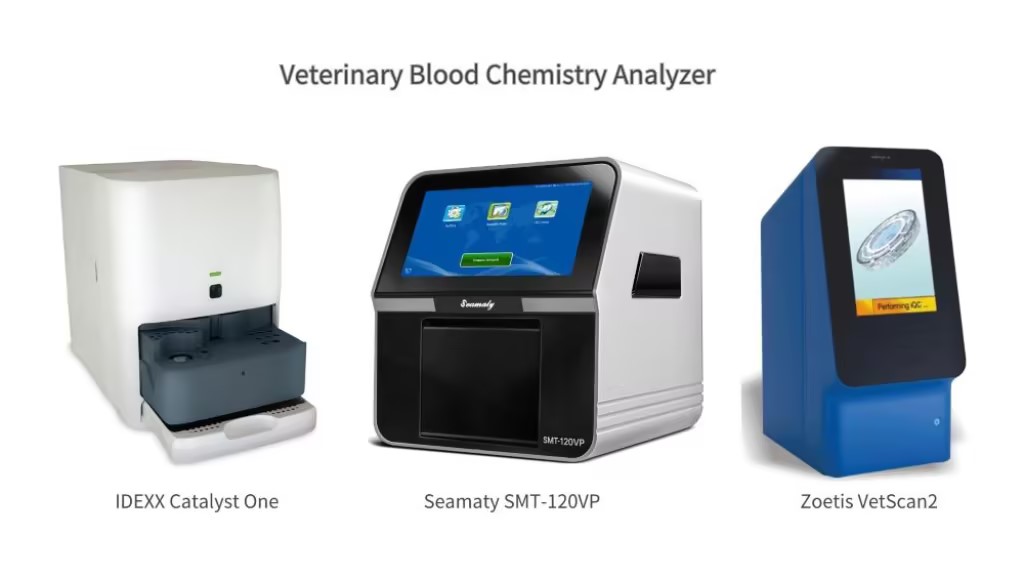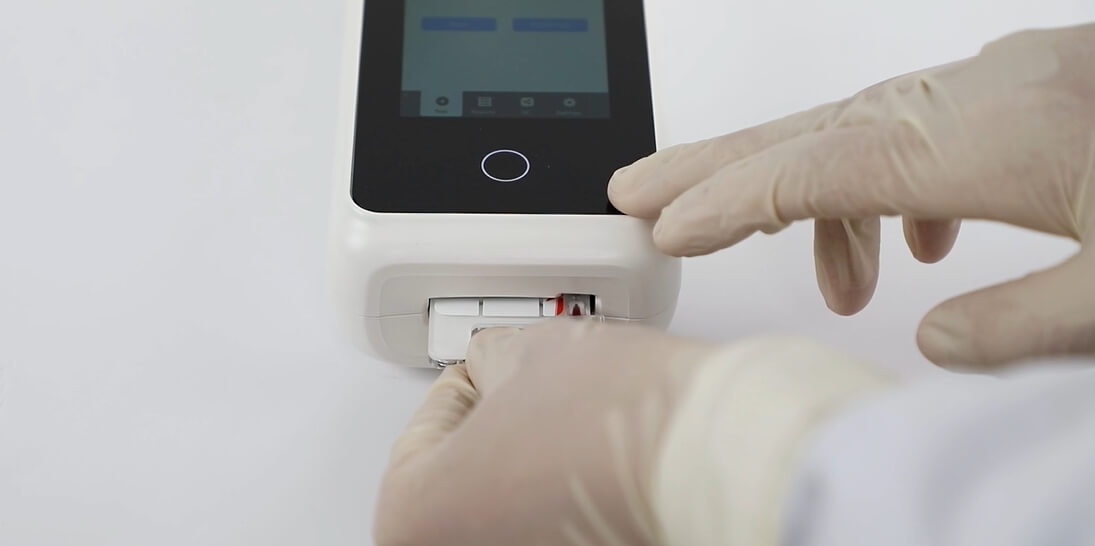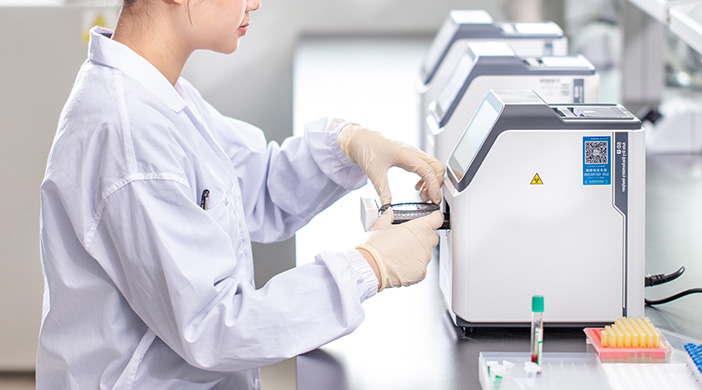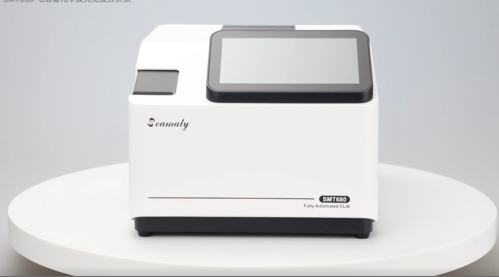release time:2024-04-03 11:38:12

Choosing the right veterinary blood chemistry analyzer for your clinic can be a tough decision. Three popular options are the SMT-120VP, Catalyst One, and VetScan2. Each analyzer has its own strengths and weaknesses, so it's important to consider your specific needs before making a purchase.
|
Feature |
SMT-120VP |
Catalyst One |
VetScan2 |
|
Brand |
Seamaty (China) |
IDEXX (USA) |
Zoetis (USA) |
|
Technical Features |
Disc centrifugal microfluidic wet chemistry |
Dry chemistry slides |
Disc centrifugal microfluidic wet chemistry |
|
Reagent Form |
Single-user reagent disc |
Single-user dry biochemical slides |
Single-user reagent disc |
|
Sample Types |
Whole blood, serum, plasma |
Whole blood, serum, plasma, urine |
Whole blood, serum, plasma |
|
Sample Volume |
100ul |
Whole blood 700ul, serum/plasma 300ul |
100ul |
|
Testing Time |
12 minutes |
8 minutes (requires off-instrument centrifugation) |
12 minutes |
|
Volume |
4kg |
12kg |
5.4kg |
|
Testing Items |
Biochemistry, electrolytes, some immunological items, coagulation; a total of 47 items, 13 types of combination reagent discs |
Biochemistry, electrolytes, urine, and some immunological items, totaling 40 testing items, 6 pre-installed combinations |
Biochemistry, electrolytes, a total of 25 testing items, 12 types of combination reagent discs |
|
Features |
Compact and portable instrument, comprehensive testing capabilities, cost-effectiveness, stability |
Renowned brand with high accuracy, flexibility in reagent card combinations, filtering layers on reagent cards reduce influence of abnormal samples |
Compact and portable instrument, supports whole blood testing with minimal sample volume, slower product updates, higher consumable costs |
(The reference materials are sourced from the official websites and product manuals of Seamaty, IDEXX, and Zoetic.)
Here's a breakdown of the key features of SMT-120VP analyzer:
SMT-120VP (Seamaty, China):
Here are some additional factors to consider when making your decision:
Ultimately, the best analyzer for your clinic is the one that meets your specific needs and budget. By carefully considering the factors mentioned above, you can make an informed decision that will benefit your practice and your patients.
Recommended further reading:
1. A Comparative Review: SMT120VP VS. VETSCAN VS2
2. Choosing the Best Veterinary Blood Chemistry Analyzer: A Helpful Guide
3. Why Choose Seamaty SMT-120VP Veterinary Analyzer? 6 Compelling Customer Stories

2023-10-26
Discover the Seamaty SE1 Handheld Electrolyte Analyzer with our user guide. Learn to quickly and accurately measure essential electrolyte levels for efficient patient care. Get step-by-step instructions and optimize your electrolyte analysis process today.

2022-05-24
Point-of-care testing has played a huge role in the medical industry in recent years, and the higher demand for POCT machines and the broader market space suggest that POCT will see more rapid and steady growth in the future. However, there are still challenges on the road to POCT machine development. The following is a summary of some of the challenges encountered on the road to POCT machine development.

2022-04-08
Commonly used in vitro diagnostic devices include biochemical analyzers, chemiluminescent immunoassay analyzers, blood cell analyzers, coagulation analyzers, urine dry chemistry analyzers, urine organic fraction analyzers, glucose meters, flow cytometry analyzers, etc.